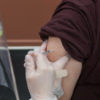
The COVID-19 pandemic has placed incredible stress on our lives. Women’s Health Week is a great reminder to take time out to check on your own health and continue to make positive lifelong changes. It was identified by the Jean Hailes annual National Women’s Health Survey that lack of time was the major contributor to women not maintaining their health. Women can often feel guilty taking time to care for themselves. This can be especially true if they are caring for children or elderly relatives.
Over the next week we’ll be looking at some of the major health issues women face. We’ll look at a few simple steps that can help maintain your health and wellbeing for the future.
Day One – Sexual & Reproductive Health
Sexual & Reproductive Health covers a range of things for women, including:
- Fertility & Pregnancy
- Endometriosis
- Polycystic Ovary Syndrome (PCOS)
- Periods and Menopause
- Cervical & Ovarian Cancer
Different life stages are associated with specific health issues, making it even more important for women to understand their reproductive health in order to notice when something changes.
Sexual health plays an important role in the health and wellbeing of women from puberty and beyond. There are physical, psychological and social factors that can affect women’s sexual and reproductive health. It includes the right of women to healthy relationships, inclusive health services, access to appropriate and accurate information, effective methods of contraception, and access to support services in relation to unplanned pregnancy.
Some ways women can maintain their reproductive health include:
- Know your body – listen to your body, and take note of what is normal for you. If something changes, it’s a good idea to chat to your doctor.
- Safe sex – practicing safe sex is important for the sexual and reproductive health of all sexually active women. It helps prevent sexually transmissible infections (STIs) that may have lifelong effects, as well as unwanted pregnancy.
- Keep up to date with sexual health services – services such as Human Papilloma Virus vaccination, cervical screening tests, and screening for STIs are all essential to maintaining good sexual health.
- Make time to speak to health professionals – if you have any concerns at all about your sexual health, make the time to speak to your doctor. Early interventions can have lifelong impacts.
If you have any concerns about a women’s sexual health issue, O’Connell St Clinic has doctors who are specifically interested in Women’s Health. To book an appointment, call our reception team on (02) 9241 1577, or click here.
Check back tomorrow for our next topic – healthy living.







